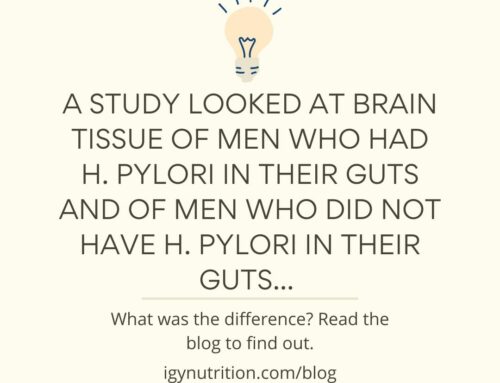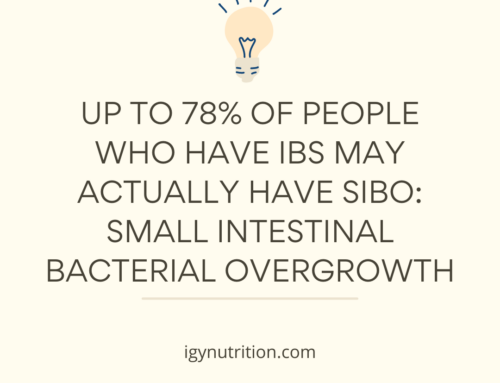Ladies, this one is for you. Is your “time of the month” really more like a “time of the once every few months?” Or “time of the once every two weeks?” Maybe your cycle feels like a faucet, with migraines and unbearable cramps in tow. Or perhaps it’s light – concerningly light.
The health of your cycle depends on your sex hormones, like estrogen, progesterone, and testosterone (yes, women have testosterone too).
Several other bodily processes depend on your sex hormones as well. Your weight, mood, digestion, and energy levels each interact with the sex hormones.
And, you guessed it – gut health affects sex hormones too. Let’s take a look at testosterone in particular.
All About Testosterone
You’ve probably heard about testosterone. The public associates it with traditionally “manly men” – think beards, muscle, and aggression. But that’s not entirely true.
Though men need more of it, testosterone is necessary for women’s health and fertility too. Testosterone promotes cell growth – something both men and women rely on.
Testosterone works on:
- Bone density
- Muscular development
- Tendon/joint strength
- Adrenal gland regulation
- Reproductive gland development
- Motility
- Gut lining
Without enough testosterone, a woman may experience:
- Low bone density
- Impaired muscle development
- Impaired joint strength
- Depression
- Low libido
- Weight gain, primarily fat
As you can see, having testosterone is crucial to female health. But having too much isn’t always a good thing.
Excess testosterone in women causes:
- Increased body fat around the midsection
- Cosmetic concerns: balding, acne, excess facial hair
- Irregular menstrual cycles
- Low sex drive
- Mental health issues
Having just the right amount of testosterone is key to a healthy female body and pleasant (yes, we said “pleasant”) menstrual cycle.
Let’s take a look at how gut health impacts testosterone.
Gut Health and Testosterone
We know gut health and testosterone go hand in hand – but so far, the studies have examined how men’s gut health affects their testosterone. We don’t know much about how women’s gut health influences testosterone, but we can make some educated guesses.
Studies have shown that inflammation due to toxins produced by harmful bacteria – called lipopolysaccharides – almost immediately decreases men’s testosterone. LPS damages the testes, infringing upon their ability to produce testosterone adequately.
Perhaps we should ask next – where is testosterone produced in women? If LPS damages the testes, where men manufacture testosterone, does LPS damage women’s testosterone manufacturer?
Female testosterone is produced in the ovaries and the adrenal glands. We know that LPS damages the ovaries, resulting in decreased production of progesterone and estrogen. (See parts 1 and 2 of this blog series).
It would make sense that LPS impairs the ovaries’ ability to produce testosterone as well. Though we don’t know for sure, for now, your best bet is to support your gut health anyway!
If you’re concerned about your hormone levels, be sure to reach out to an endocrinologist. In the meantime, work on those gut bugs!
Tag us in photos of your digestive wellness journey on Instagram @igynutrition!




